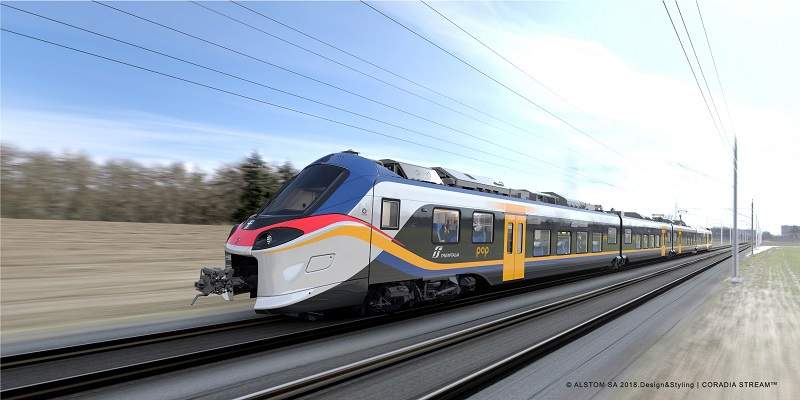
Italian national train operator Trenitalia has awarded four contracts to Alstom to supply 54 Coradia Stream regional trains.
The deals are valued at €330m and the trains will operate in four Italian regions.

Discover B2B Marketing That Performs
Combine business intelligence and editorial excellence to reach engaged professionals across 36 leading media platforms.
In August 2016, Trenitalia and Alstom signed a frame agreement that involves the supply of 150 medium-capacity regional trains. As part of the agreement, 47 units were ordered by Italy’s Emilia Romagna region in the same year.
In the latest order, 31 trains will be delivered to Veneto region, 15 trains to Liguria, while Abruzzo and Marche will receive four trains each.
Alstom Italy managing director Michele Viale said: “We are very pleased that Trenitalia and Abruzzo, Liguria, Marche, Veneto have renewed their confidence in Alstom’s Coradia range of regional trains and we hope to get on board with other regions.”
Designed to operate on regional and intercity lines, Coradia Stream is an electric multiple unit (EMU) and its regional model has a maximum speed of 160km/h.

US Tariffs are shifting - will you react or anticipate?
Don’t let policy changes catch you off guard. Stay proactive with real-time data and expert analysis.
By GlobalDataThe trains ordered by Trenitalia are 95% recyclable and can carry 300 seated passengers.
According to the requirements of the operator, the Coradia Stream can be easily customised including modifications to the interior layouts and seating arrangements.
The vehicle’s interior layout can also be modified such as the addition of bicycle or ski racks, electric sockets, Wi-Fi connection and vending machines for drinks and snacks.
All of these trains are manufactured by Alstom’s Italian facilities at a Savigliano site in Cuneo, where project development and most manufacturing works are carried.
The Sesto San Giovanni plant is responsible for the design and manufacture of the traction systems and auxiliary switches, while on-board signalling systems are provided by the Bologna site.





